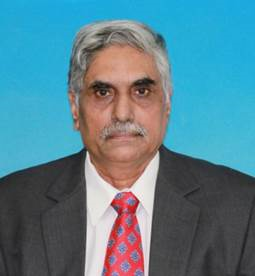Systematic Approach for Carbon Capture Storage Development Plan
Disciplines: Health, Safety, Environment, and Sustainability | Reservoir
Course Description
Green House Gas (GHG) emission is increasing due to more energy consumption as urbanisation, population, economic growth, and deforestation are on the rise and current and enhanced future emission would have catastrophic effect on environment. Rapid economic growth and development increased industrialisation and improved energy access have led to strong growth in the energy demand. Oil and gas plays an important role in the total energy mix and will continue in coming future also due to their affordability and easiness of use. The infrastructure and facilities in oil and gas industry viz, drilling rigs, pipeline, casing and tubular, platforms and chemical produced from other industries also contribute significant greenhouse gas (GHG) emission. GHG emission in the atmosphere is causing temperature rise of the earth which is a major cause for climate change. Therefore, efforts are being made to control the emission by developing renewable energy resources and managing the inevitable CO2 emission. Carbon dioxide (CO2) capture, utilisation, and storage is the best option for mitigating atmospheric emissions of CO2 and thereby controlling the greenhouse gas concentration in the atmosphere. Despite the benefits, there have been a limited number of projects solely for CO2 sequestration being implemented. The industry is well-versed in gas injection in reservoir formation for pressure maintenance and improving oil recovery. However, there are striking differences between the injection of CO2 into depleted hydrocarbon reservoirs and saline aquifers, and the engineered storage of CO2. The differences and challenges are compounded when the storage site is in offshore for bulk storage volume. There is an urgent need to improve yesterday's performance and meet tomorrow's challenge in CCUS in the petroleum industry. Natural gas would be the transition fuel from conventional to renewable energy sources. Therefore, development of contaminated gas fields is linked with CO2 storage.
This training programme is designed to explain the fundamentals of CCS, screening of qualified storage sites, comprehensive storage development plan, estimation of capacity, containment and injectivity. Measurement, monitoring and verification is a critical component in CCS process and that is explained in detail on what needs to be done with proper emphasis on science and technology in CCS process and project. Introduction to technology requirements and its roadmap in a company is paramount and enablers, and capability development aspects are also given due weightage in the course.
- Capture: Includes capture, separation, dehydration and compression of CO2
- Phase behaviour of CO2
- Transport: CO2 transport by tankers, pipeline or ship to a storage site
- Storage: Containment and risk mitigation, and capacity
- Measurement, monitoring, and verification (MMV): Ensures secure and permanent storage
- Major uncertainties and associated risks
Preliminary Daily Agenda
Learning Level
Intermediate
Course Length
1 Day
Why Attend
As globally recognised, among the main efforts to control GHG emission for sustainable development is comprehensive understanding of CO2 Capture Utilisation and Storage processes. Identification of suitable storage sites, developing storage development plans for efficient implementation and management become critical. As an oil and gas industry professional, it is important for you to understand the challenges, options and best practices dealing with CCS planning, studies, executing and monitoring in order to create awareness among oil and gas industry professionals.
Who Attends
The course is designed for upstream professionals involving in various phases of technical and engineering SDP studies and CO2 capture/separation, transportation, injection as well as for those in measurement, monitoring and verification (MMV) of CCS operation. The training programme also captures major risk and uncertainties, and mitigation measures in the operation.
Special Requirements
N/A
Cancellation Policy
All cancellations must be received no later than 14 days prior to the course start date. Cancellations made after the 14-day window will not be refunded. Refunds will not be given due to no show situations.
Training sessions attached to SPE conferences and workshops follow the cancellation policies stated on the event information page. Please check that page for specific cancellation information.
SPE reserves the right to cancel or re-schedule courses at will. Notification of changes will be made as quickly as possible; please keep this in mind when arranging travel, as SPE is not responsible for any fees charged for cancelling or changing travel arrangements.
We reserve the right to substitute course instructors as necessary.
Instructors
 Dr. Raj Tewari is the Chief Scientist R&D in Group Research & Technology (GR&T) PETRONAS and is an accomplished, well known Reservoir Engineering professional in the industry and has contributed significantly for oil and gas field developmet & management, IOR/EOR, CO2 management, and upstream R & D. Dr Raj Tewari held the position of Group Technical Authority and Custodian, Reservoir Engineering in PETRONAS. He has nearly four decades experience in the oil and gas industry and has worked in ONGC, GNPOC, Sudapet and PETRONAS. He has recevied SPE Asia Pacific Technical award of Production and Operation in 2015. He authored a book on Petroleum Fluids Characterisation (CRC Press USA) and published more than 115 papers in journals and conference proceedings. He maintained high standard of research quality as Technology Readiness Level Committee (TRLC) chairman and Invention Review Committee (IRC) in PETRONAS. He has been the chairman of SPE ATW on Nanotechnology, EOR Simulation, Sour Gas, Panel speakers and moderators in number of SPE, IPTC and OTC conferences and workshops. He is SPE DLC and member in SPE RTAC and editorial team of few journals. Dr Raj Tewari was an industry advisor (2015-2019) and is adjunct faculty in Universiti Teknologi PETRONAS (UTP) Malaysia. He has been PhD examiner in TU-Delft, and examiners UTP Malaysia. He is also the Associate Editor of Journal of Natural Gas Science and Engineering and technical reviewers in Journal of Petroleum Exploration and Production technology, American Journal of Environmental Science, Arabian geological Journal and Petroleum Science.
Dr. Raj Tewari is the Chief Scientist R&D in Group Research & Technology (GR&T) PETRONAS and is an accomplished, well known Reservoir Engineering professional in the industry and has contributed significantly for oil and gas field developmet & management, IOR/EOR, CO2 management, and upstream R & D. Dr Raj Tewari held the position of Group Technical Authority and Custodian, Reservoir Engineering in PETRONAS. He has nearly four decades experience in the oil and gas industry and has worked in ONGC, GNPOC, Sudapet and PETRONAS. He has recevied SPE Asia Pacific Technical award of Production and Operation in 2015. He authored a book on Petroleum Fluids Characterisation (CRC Press USA) and published more than 115 papers in journals and conference proceedings. He maintained high standard of research quality as Technology Readiness Level Committee (TRLC) chairman and Invention Review Committee (IRC) in PETRONAS. He has been the chairman of SPE ATW on Nanotechnology, EOR Simulation, Sour Gas, Panel speakers and moderators in number of SPE, IPTC and OTC conferences and workshops. He is SPE DLC and member in SPE RTAC and editorial team of few journals. Dr Raj Tewari was an industry advisor (2015-2019) and is adjunct faculty in Universiti Teknologi PETRONAS (UTP) Malaysia. He has been PhD examiner in TU-Delft, and examiners UTP Malaysia. He is also the Associate Editor of Journal of Natural Gas Science and Engineering and technical reviewers in Journal of Petroleum Exploration and Production technology, American Journal of Environmental Science, Arabian geological Journal and Petroleum Science.

Tan Chee Phuat is the Chief Scientist (R&D Geomechanics), Scientist Technical Authority with PETRONAS Research and provides techincal expertise and input for geomechanics R&D projects, research roadmap, directions and goals, workflows and guidelines development. With more than 35 years of industry geomechanics experience in research & development, technical service, operation and academic, he is an internationally recognised all-rounded expert in petroleum geomechanics, in particular reservoir and completion integrity geomechanics, wellbore-centric geomechanics, CO2 storage containment/integrity, drilling fluid-shale interactions and laboratory testing/simulations. He has extensive experience in Asia, Australia and Middle-East, and managed/worked on projects in Africa, the Americas, Russia and Europe.
He holds 3 patents, 4 patents pending, 9 trade secrets and 4 copyrights pending, and authored/co-authored more than 200 journal, conferences and symposium publications. He has given more than 60 technical presentations at keynore addresses, forums, conference, symposiums and professional society workshops, and taught various geomechanics courses for Schlumberger NExT, CSIRO Petroleum and UniversitI Teknologi PETRONAS.
He is a Technical Reviewed for Journal of Petroleum Science and Engineerin, Petroleum Geoscience Journal and International Journal for Rock Mechanics and Mining Science, and served as Special Faculty Member of the School of Petroleum & Geological Engineering, The University of Oklahoma, USA Member of Graduate School Master of Science Thesis Examining Committee, School of Civil Engineering, University of Minnesota, USA, and Adjunct Lecturer, Universiti Teknologi PETRONAS, Malaysia. He is currently co-supervising Master Students at Universiti Teknologi PETRONAS, Malaysia, and has also co-supervised 8 PhD and Master Students at Faculte Polytechnique de Mons, Belgium and Monash University, Melbourne University and University of New South Wales, Australia.
Other courses by these instructors
Tan Chee Phuat
The course addresses the holistic sand management strategy implementation from geomechanics perspectives, through evaluation and implementation of appropriate solutions for minimisation of well costs and maximisation of reservoir productivity. It wil...
(Read More)Disciplines: Completions | Production and Operations
